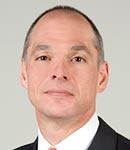Office Properties Income Trust might be the new kid on the REIT block, but it’s actually been around for a while in commercial real estate.
On Dec. 31, Government Properties Income Trust and Select Income REIT completed their merger to form Office Properties Income Trust, based in Newton, Mass. David Blackman, president and CEO of the newly-organized REIT, says the merger enabled the disentanglement of a complicated ownership structure under the umbrella of The RMR Group Inc., an asset manager.
Blackman had an executive role at both Government Properties Income Trust and Select Income REIT. The two REITs were publicly-traded, as is Office Properties Income Trust.
While Government Properties Income Trust concentrated on office buildings leased primarily by government tenants and Select Income REIT concentrated on single-tenant and multi-tenant office buildings, both focused on core assets capable of delivering sustainable long-term streams of income, according to Blackman. That emphasis won’t change, he says.
Executives at Office Properties Income Trust are “highly energized” about the opportunities that lie ahead, Blackman notes.
“We created a company with a very simple ownership structure and a very discrete investment thesis that has much greater scale, much greater diversification and a very well-laddered lease expiration schedule.”
As of Sept. 31, what now is Office Properties Income Trust owned 213 properties totaling 30.2 million sq. ft. in 38 states and the District of Columbia. Those assets are valued at $5.8 billion. The REIT’s tenants are mostly located in Texas; Silicon Valley and Sacramento, Calif.; and the D.C. metro area.
NREI spoke with Blackman about Office Properties Income Trust’s asset mix, disposition strategy and acquisition approach, and his outlook for the office market in 2019.
This Q&A has been edited for length, style and clarity.
NREI: Going forward, what is your REIT’s asset focus going to be?

David Blackman: The focus is going to be on single-tenant office buildings, both urban and suburban, as well as buildings that are leased to tenants with high credit quality, including government entities.
NREI: What does your disposition strategy look like?
David Blackman: When we announced the merger, we said that we wanted to have a market leverage of six-and-a-half times debt to EBIDTA and that at the closing of the merger, we would be around seven-and-a-half times debt to EBIDTA. We have sought to achieve our target leverage in approximately six months from closing and have identified approximately $750 million worth of properties that we would consider for disposition. We have commenced the process to begin marketing those assets, with the expectation that we will have our leverage in line by the end of June 2019.
NREI: How many properties have been identified in your disposition strategy?
David Blackman: We’ve identified 27 properties. What we have done is we’ve created a portfolio of properties that either are long-term leased with good tenants that we think will sell relatively quickly at very good cap rates and will likely generate gains, or a handful of properties that we think are problems or will become problems in the future.
We expect that we will have some of them on the market by end of January and some of them on the market by the middle of February. We’re working with multiple brokerage firms.
We felt the best way to reduce leverage was through property sales. The focus is to maybe sell a couple of assets that are core, but predominantly sell assets that we think are non-core. It gives us the ability to appropriately prune the portfolio and position us for a long-term disposition plan that allows us to reshape the portfolio. We generally want to own higher-quality assets.
NREI: How will you be approaching acquisitions?
David Blackman: Until we get our leverage down to six-and-a-half times debt to EBITDA, we don’t anticipate doing any acquisitions. I think it’ll be the second half of 2019 before we become active again in the acquisition market. We need to position our company to buy assets again.
NREI: What’s giving you some pause as you execute these strategies?
David Blackman: The things that I don’t control — the economy, the government shutdown, trade policies. Those are the things that I think impact the long-term health of the economy, which then will have an impact on real estate. I wouldn’t say they keep me up at night, but those are the things that I think can create stress across the industry and have an impact on the value of real estate and our ability to deliver strong cash flows.
NREI: What’s your outlook for the office market in 2019?
David Blackman: There are good markets to own assets and less good markets to own assets. The nice thing about office is that it is a huge, huge market, and we have the opportunity to be selective and invest in markets where we think the economy has demand generators and other characteristics that will support long-term growth and the ability to grow rents.

